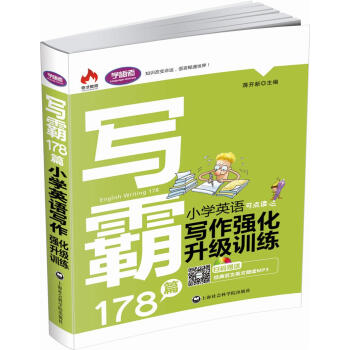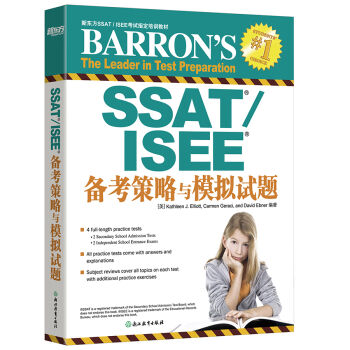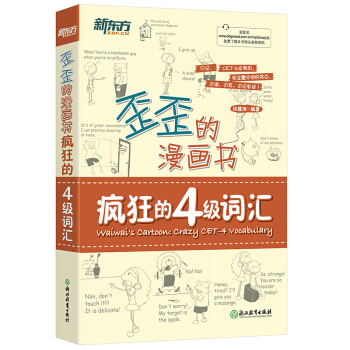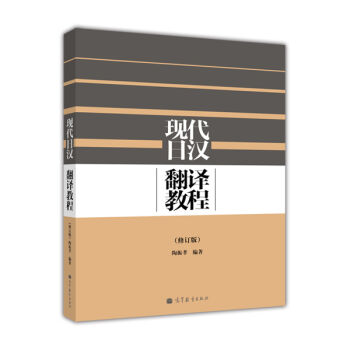![THE VOICE OF THE CITY: BEST SHORT STORIES OF O. Henry [欧·亨利经典短篇小说]](https://pic.windowsfront.com/11643833/54c5d2eaN52ecb5df.jpg)

具体描述
编辑推荐
海报:
内容简介
O. Henry (1862-1910), Born William Sydney Porter, on September 11,1862, in Greensboro, North Carolina, he was the famous American short-story writer, who wrote under the pseudonym O. Henry,pioneered in picturing the lives of lower-class and middle-class New Yorkers.Porter attended school for a short time, then clerked in an uncle's drugstore. At the age of 20 he went to Texas, working first on a ranch and later as a bank teller. In 1887 he married and began to write freelance sketches. A few years later he founded a humorous weekly, the Rolling Stone . When this failed, he became a reporter and columnist on the Houston Post .
He was indicted in 1896 for embezzling bank funds(actually a result of technical mismanagement),and was imprisoned in Columbus, Ohio. During his three-year incarceration, he wrote adventure stories set in Texas and Central America that quickly became popular and were collected in Cabbages and Kings .Released from prison in 1902, Porter went to New York City, his home and the setting of most of his fiction for the remainder of his life, writing prodigiously under the pen name O. Henry. His popular collections of stories included The Four Million; Heart of the West and The Trimmed Lamp; The Gentle Grafter and The Voice of the City; Options; and Whirligigs and Strictly Business.
欧·亨利,20世纪初美国著名短篇小说家,美国现代短篇小说创始人。与法国的莫泊桑、俄国的契诃夫并称为“世界三大短篇小说巨匠”。 他少年时曾一心想当画家,婚后在妻子的鼓励下开始写作。后因在银行供职时的账目问题而入狱,服刑期间开始认真写作,并以“欧·亨利”为笔名发表了大量短篇小说,引起读者广泛关注。
欧·亨利是一位高产的作家,一生共留下了一部长篇小说和三百多篇短篇小说。他的短篇小说构思精巧,风格独特,与当时其他作家着重表现纽约等大城市的上层社会不同,欧·亨利一直着力于表现繁华都会以及西部乡村里普普通通的“小人物”,描写了美国民众的日常生活以及他们对浪漫和冒险生活的追求。其以语言幽默、结局出人意料(即“欧·亨利式结尾”)而闻名于世。代表作有短篇小说《爱的牺牲》(A Service of Love)、《警察与赞美诗》(The Cop and the Anthem)、《带家具出租的房间》(The Furnished Room)、《麦琪的礼物》(The Gift of the Magi)、《最后的常春藤叶》(The Last Leaf)等。
本书为英文原版,汇集了65篇欧·亨利经典作品,同时配以原版朗读供读者免费下载,让读者边听边读,更好地提升英语水平。
作者简介
欧·亨利,20世纪初美国著名短篇小说家,美国现代短篇小说创始人。与法国的莫泊桑、俄国的契诃夫并称为“世界三大短篇小说巨匠”。本书按英文版方式出 版,汇集了65篇欧·亨利的经典短篇小说,同时配以原版朗读文件,供读者免费下载,边听边读,综合提升语言的学习能力与水平。内页插图
目录
01 An Adjustment of Nature02 The Admiral
03 After 20 Years
04 Between Rounds
05 The Brief Début of Tildy
06 The Buyer From Cactus City
07 By Courier
08 The Caliph, Cupid and the Clock
09 A Call Loan
10 Caught
11 The Chair of Philanthromathematics
12 A Chaparral Christmas Gift
13 A Comedy in Rubber
14 The Coming-out of Maggie
15 Conscience in Art
16 The Cop and the Anthem
17 A Cosmopolite in a Café
18 Cupid’s Exile Number Two
19 Dickey
20 The Exact Science of Matrimony
21 The Flag Paramount
22 “Fox-in-the-Morning”
23 From the Cabby’s Seat
24 The Furnished Room
25 The Gift of the Magi
26 The Green Door
27 The Hand that Riles the World
28 Hearts and Hands
29 Hygeia at the Solito
30 Innocents of Broadway
31 Jeff Peters as a Personal Magnet
32 The Last Leaf
33 A Lickpenny Lover
34 Lost on Dress Parade
35 The Love-philter of Ikey Schoenstein
36 The Making of a New Yorker
37 Mammon and the Archer
38 Man About Town
39 Memoirs of a Yellow Dog
40 A Midsummer Masquerade
41 The Missing Chord
42 Modern Rural Sports
43 The Octopus Marooned
44 The Pimienta Pancakes
45 The Princess and the Puma
46 The Proem By the Carpenter
47 The Ransom of Mack
48 The Romance of a Busy Broker
49 Rouge et Noir
50 A Service of Love
51 Shearing the Wolf
52 Ships
53 Shoes
54 Sisters of the Golden Circle
55 The Skylight Room
56 Smith
57 Springtime à La Carte
58 Squaring the Circle
59 A Strange Story
60 Telemachus, Friend
61 Tobin’s Palm
62 An Unfinished Story
63 The Vitagraphoscope
64 The Voice of The City
65 Witches’ Loaves
精彩书摘
An Adjustment of NatureIn an art exhibition the other day I saw a painting that had been sold for $5,000. The painter was a young scrub out of the West named Kraft, who had a favourite food and a pet theory. His pabulum was an unquenchable belief in the Unerring Artistic Adjustment of Nature. His theory was fixed around corned-beef hash with poached egg. There was a story behind the picture, so I went home and let it drip out of a fountain-pen. The idea of Kraft—but that is not the beginning of the story.
Three years ago Kraft, Bill Judkins (a poet), and I took our meals at Cypher’s, on Eighth Avenue. I say “took.” When we had money, Cypher got it “off of ” us, as he expressed it. We had no credit; we went in, called for food and ate it. We paid or we did not pay. We had confidence in Cypher’s sullenness and smouldering ferocity. Deep down in his sunless soul he was either a prince, a fool or an artist. He sat at a worm-eaten desk, covered with files of waiters’ checks so old that I was sure the bottomest one was for clams that Hendrik Hudson had eaten and paid for. Cypher had the power, in common with Napoleon III. and the goggle-eyed perch, of throwing a film over his eyes, rendering opaque the windows of his soul. Once when we left him unpaid, with egregious excuses, I looked back and saw him shaking with inaudible laughter behind his film. Now and then we paid up back scores.
But the chief thing at Cypher’s was Milly. Milly was a waitress. She was a grand example of Kraft’s theory of the artistic adjustment of nature. She belonged, largely, to waiting, as Minerva did to the art of scrapping, or Venus to the science of serious flirtation. Pedestalled and in bronze she might have stood with the noblest of her heroic sisters as “Liver-and-Bacon Enlivening the World.”
She belonged to Cypher’s. You expected to see her colossal figure loom through that reeking blue cloud of smoke from frying fat just as you expect the Palisades to appear through a drifting Hudson River fog. There amid the steam of vegetables and the vapours of acres of “ham and,” the crash of crockery, the clatter of steel, the screaming of “short orders,” the cries of the hungering and all the horrid tumult of feeding man, surrounded by swarms of the buzzing winged beasts bequeathed us by Pharaoh, Milly steered her magnificent way like some great liner cleaving among the canoes of howling savages.
Our Goddess of Grub was built on lines so majestic that they could be followed only with awe. Her sleeves were always rolled above her elbows. She could have taken us three musketeers in her two hands and dropped us out of the window. She had seen fewer years than any of us, but she was of such superb Evehood and simplicity that she mothered us from the beginning. Cypher’s store of eatables she poured out upon us with royal indifference to price and quantity, as from a cornucopia that knew no exhaustion. Her voice rang like a great silver bell; her smile was many-toothed and frequent; she seemed like a yellow sunrise on mountain tops. I never saw her but I thought of the Yosemite. And yet, somehow, I could never think of her as existing outside of Cypher’s. There nature had placed her, and she had taken root and grown mightily. She seemed happy, and took her few poor dollars on Saturday nights with the flushed pleasure of a child that receives an unexpected donation.
It was Kraft who first voiced the fear that each of us must have held latently. It came up apropos, of course, of certain questions of art at which we were hammering. One of us compared the harmony existing between a Haydn symphony and pistache ice cream to the exquisite congruity between Milly and Cypher’s.
“There is a certain fate hanging over Milly,” said Kraft, “and if it overtakes her she is lost to Cypher’s and to us.”
“She will grow fat?” asked Judkins, fearsomely.
“She will go to night school and become refined?” I ventured anxiously.
“It is this,” said Kraft, punctuating in a puddle of spilled coffee with a stiff forefinger. “Caesar had his Brutus—the cotton has its bollworm, the chorus girl has her Pittsburger, the summer boarder has his poison ivy, the hero has his Carnegie medal, art has its Morgan, the rose has its—”
“Speak,” I interrupted, much perturbed. “You do not think that Milly will begin to lace?”
“One day,” concluded Kraft, solemnly, “there will come to Cypher’s for a plate of beans a millionaire lumberman from Wisconsin, and he will marry Milly.”
“Never!” exclaimed Judkins and I, in horror.
“A lumberman,” repeated Kraft, hoarsely.
“And a millionaire lumberman!” I sighed, despairingly.
“From Wisconsin!” groaned Judkins.
We agreed that the awful fate seemed to menace her. Few things were less improbable. Milly, like some vast virgin stretch of pine woods, was made to catch the lumberman’s eye. And well we knew the habits of the Badgers, once fortune smiled upon them. Straight to New York they hie, and lay their goods at the feet of the girl who serves them beans in a beanery. Why, the alphabet
itself connives. The Sunday newspaper’s headliner’s work is cut for him.
“Winsome Waitress Wins Wealthy Wisconsin Woodsman.”
For a while we felt that Milly was on the verge of being lost to us.
It was our love of the Unerring Artistic Adjustment of Nature that inspired us. We could not give her over to a lumberman, doubly accursed by wealth and provincialism. We shuddered to think of Milly, with her voice modulated and her elbows covered, pouring tea in the marble teepee of a tree murderer. No! In Cypher’s she belonged—in the bacon smoke, the cabbage perfume, the grand, Wagnerian chorus of hurled ironstone china and rattling casters.
……
用户评价
总而言之,这是一部值得反复阅读的经典合集,它的价值经得起时间的考验。我不会把它束之高阁,而是会时不时地把它放在床头,在心绪不宁的时候,随机翻开其中一篇,总能从中汲取到一份宁静和智慧。它不仅仅是文学爱好者应该珍藏的作品,更是任何想要了解美国现实主义文学黄金时代面貌的人的必读书目。这本书成功地捕捉了那个时代都市生活的精髓——那种在巨大压力下依然保持着的人性的光辉与脆弱。它提醒我们,无论科技如何发展,社会如何变迁,人类对爱、失去、希望和欺骗的体验,始终是相通的。它教会我的,不仅仅是如何欣赏短篇小说的结构美学,更是如何以一种更具同理心和洞察力的目光去看待我们周遭的世界和身边的每一个人。
评分从阅读体验上来说,这本书极大地丰富了我对文学节奏感的认知。作者的语言风格变化多端,时而幽默诙谐,充满了俏皮的讽刺,能让你在哈哈大笑中领悟到生活的荒诞;时而又变得沉静、内敛,用克制的笔墨描绘出内心的巨大波澜。这种张弛有度的叙事节奏,使得阅读过程非常流畅,几乎没有感到任何滞涩感。我通常是一个容易分心的人,但捧着这本书的时候,外界的喧嚣仿佛都自动被隔绝了,我完全沉浸在作者构建的那个充满烟火气的世界里。更难得的是,他的描述性语言非常精准且富有画面感,你几乎能闻到老式咖啡馆里散发出的咖啡豆焦香,能感受到冬日里寒风刺骨的威力,这种身临其境的感觉,是很多现代文学作品所欠缺的。这本书就像一位技艺高超的魔术师,不断地用不同的手法调动读者的情绪,让人欲罢不能。
评分这本书的封面设计简直是一场视觉盛宴,那种复古的字体排版和柔和的色调,一下子就把人拉回了那个喧嚣又充满人情味的都市角落。我记得我是在一家小小的二手书店里发现它的,当时阳光正好洒在书脊上,那标题本身就带着一种魔力,仿佛能听到旧时代纽约街头车马辚辚的声音。拿到手里沉甸甸的,纸张的触感非常细腻,不是那种廉价的印刷品能比拟的,这让我对内页的内容充满了期待。光是翻阅目录时的那种仪式感,就觉得这是一次严肃的阅读之旅,而不是随便翻翻打发时间。书店老板看我爱不释手的样子,还特意跟我聊了几句关于那个时代的文学风尚,说这本书的装帧复刻得极其用心,每一个细节都在致敬经典。坦白说,在这个电子书横行的年代,能拥有一本如此有质感的实体书,本身就是一种享受,它不仅仅是文字的载体,更像是一件可以被珍藏的艺术品,放在书架上都能提升整个房间的格调。
评分说实话,我一开始对这种“最佳短篇小说集”有点敬而远之,总担心会遇到一些年代久远、语言晦涩难懂的作品,毕竟跨越时代的阅读总是有门槛的。但当我真正沉下心来,被卷入故事的叙事洪流中时,那种顾虑完全烟消云散了。这位作者的笔触简直是神来之笔,他对人物的刻画入木三分,寥寥数语就能勾勒出一个鲜活、有血有肉的灵魂,他们的喜怒哀乐、他们的小聪明和大失落,都那么真实得让人感同身受。我尤其欣赏其中那些巧妙的叙事结构,常常在故事的结尾处迎来一个令人拍案叫绝的反转,那种感觉就像是侦探小说的高潮迭起,但它又不是单纯的技巧炫耀,而是恰到好处地揭示了人性的某种普遍真理或讽刺。每次读完一个故事,我都会习惯性地停顿几分钟,回味那种余韵悠长的复杂情绪,有时候是会心一笑,有时候是微微的酸楚,但绝不只是“读完了”而已,更像是完成了一次深刻的对话。
评分这本书的选篇质量非常稳定,没有出现那种“凑数”的作品,每一篇都像是精心打磨过的宝石,各有各的闪光点。我特别注意到作者对“命运的捉弄”和“小人物的尊严”这两个主题的反复探讨,他总是能从最平凡、最不起眼的市民生活中,挖掘出最深刻的哲学思考。比如在某个故事里,一个为生计奔波的小职员,他所有的努力和算计,最终都导向了一个出乎意料的结局,但这个结局却带着一种近乎残酷的美感,让人不得不去思考,我们所追求的成功和幸福,其本质到底是什么?这种对社会阶层和金钱观的微妙审视,使得整本书的内涵远超一般的通俗小说,它更像是一面镜子,照见了我们自己在这个庞大都市机器中的位置。读完后,我感觉自己对身边那些擦肩而过的陌生人多了一份理解和敬意,因为我知道,每一个看似普通的个体背后,都藏着一个不为人知、跌宕起伏的故事。
评分可以的哦。。。。。。。
评分物流真的很快~书不错,努力
评分送货很快,质量上图,可以下载朗读音频。很好很好
评分这本书很厚,外面有塑料包装
评分书比平时买的要小很多 (口袋书),挺适合没事的时候拿出来看一看 现在看了将近20页
评分孩子过暑假买的,打算看看英文原版书,提升英文水平,理想丰满,现实骨感,没看两篇,束之高阁了。
评分东西非常好哟~家人非常喜欢~质量也是杠杠的。京东的快递也是飞速的。好评。
评分大家作品,细细品读,享受字里行间的优美
评分给单位图书室买的书,质量很好内容更好
相关图书
本站所有内容均为互联网搜索引擎提供的公开搜索信息,本站不存储任何数据与内容,任何内容与数据均与本站无关,如有需要请联系相关搜索引擎包括但不限于百度,google,bing,sogou 等
© 2026 book.coffeedeals.club All Rights Reserved. 静流书站 版权所有




![英语五千单词百日通(第二版) [Mastering English Vocabulary in One Hundred Days] pdf epub mobi 电子书 下载](https://pic.windowsfront.com/11829372/5673c265N25583e59.jpg)










![6500词床头灯英语学习读本:不可不知的德国历史故事(英汉对照) [Historical Stories of Germany] pdf epub mobi 电子书 下载](https://pic.windowsfront.com/10051488/c9286e51-e0b4-4001-91b9-1976b0973247.jpg)
![世界名著典藏系列:当男人结婚时(英文全本) [When a Man Marries] pdf epub mobi 电子书 下载](https://pic.windowsfront.com/10916154/rBEIC0_RuzwIAAAAAADZTMGVMY8AAAflgApAKUAANlk026.jpg)
![汉译英常用表达式经典惯例 [Classic Examples of Converting Chinese to English in Terms of Expressions for Ev] pdf epub mobi 电子书 下载](https://pic.windowsfront.com/11038017/rBEIC1ADyIIIAAAAAABweV3eaxkAAEB4gPXYkgAAHCR839.jpg)


